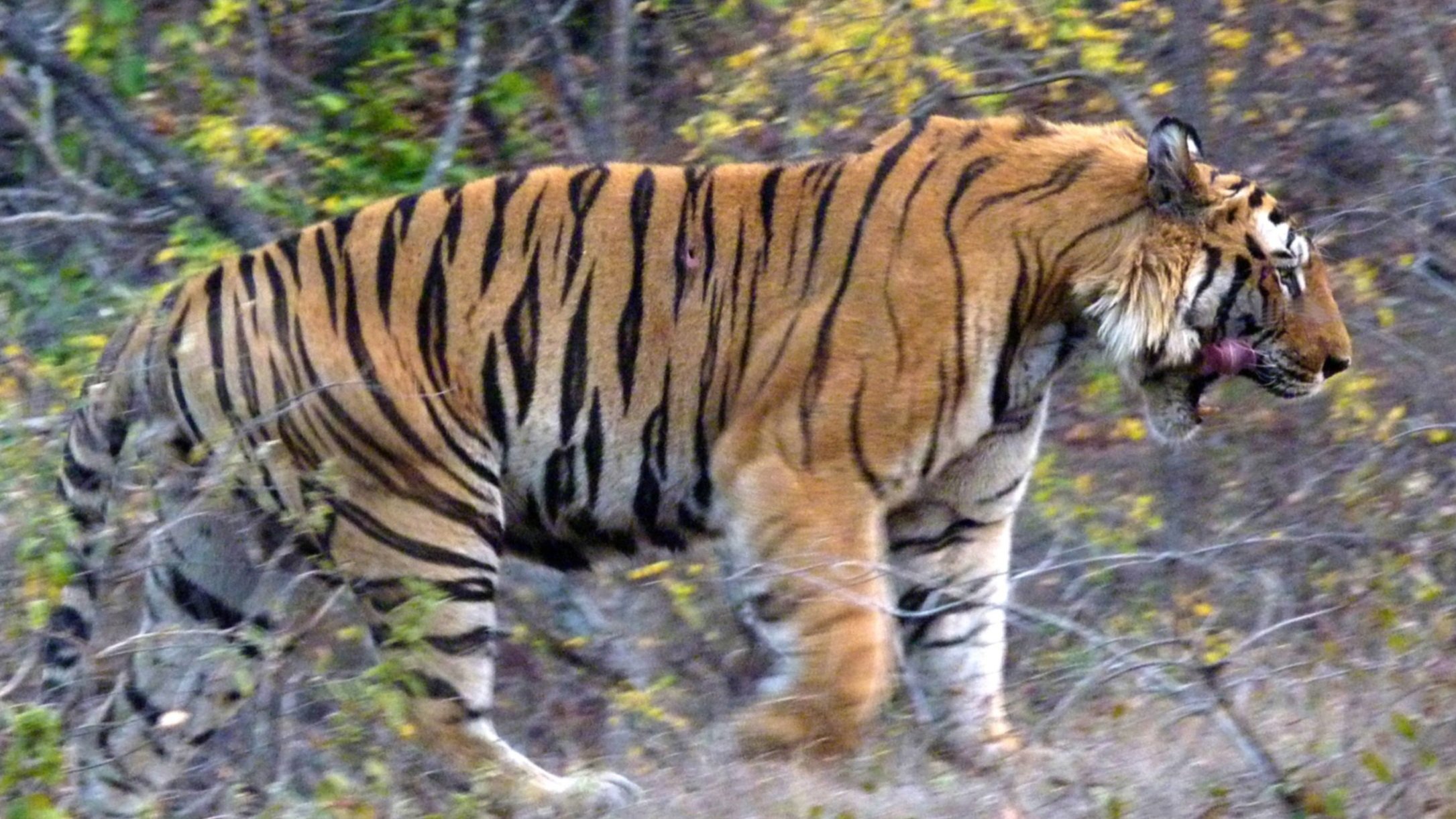
December 2023
Friends:
Nepal has become the international role model for community-based tiger conservation. Tiger numbers roared from 121 to 355 in the 2022 census. This substantial growth increase is the result of Nepal's protection of tiger habitats and corridors, its collaboration with local communities and its strict enforcement of laws against poaching and illegal animal trade. On November 13th, there was a photo essay on the CNN website titled "In Nepal, the king of the jungle is making a comeback” with the following caption under the lead photo of a tiger... “Most of us will never see a tiger in the wild, let alone come close to one. But in Nepal's Khata Corridor, people live side by side with them. Despite the risks, the community is supportive of tiger conservation — and as a result, tiger numbers here have tripled in the last decade.”
In August, 2023, we received an excellent report from the ground-breaking, community-based tiger conservation effort [Participatory Anti-Poaching Unit- PAPU] we began under Dr. Bhim Gurung in 2009 at Bardia National Park. This is at Dalla, in the Khata Corridor, a vast swath of land that connects prime tiger habitat between the jungles of southern Nepal and the forests of northern India. This project is focused on controlling illegal poaching of wildlife and engaging the community in tiger conservation efforts. There has been no recent records of tiger, elephant, and rhino poaching and the movement of the tiger has drastically increased in the corridor forest. These patrols and community conservation efforts are particularly important in the buffer zones and community forests because there is no official presence of the Nepalese Army outside the park boundaries.
On October 6th we renewed our commitment to the Long-Term Tiger Monitoring project we have been supporting at Chitwan National Park. Tiger monitoring began in Nepal in 1974 with the Smithsonian-supported Tiger Ecology Project led by Chuck McDougal, David Smith, Mel Sunquist and others. This was replaced by the Long-Term Tiger Monitoring project McDougal started in 1980, now run by Bhim Gurung and the Nepal Tiger Trust. We have been supporting this since our inception in 1996. Our two main trackers, Baburam Mahato and Raju Kumal have done exemplary work. A total of 18 different tigers have been documented in the Meghauli Buffer Zone Community Forest. They are the first to be called by Park officials to investigate problem tigers who have become dangerous to village safety. And their camera work has recorded tiger dispersal routes into the Duanne Hills west of Chitwan which suggests a corridor to Bardia and other tigers reserves in Western Nepal.
Based on the success of the PAPU at Dalla Post, Bardia, we have consolidated our efforts at Chitwan National Park and, in 2018, initiated a PAPU at Meghauli village. Recent reports show our team has been very effective in anti-poaching patrols with Park officials and the Army, working with the Nepal Tiger Trust camera trapping effort, and helping to diffuse tensions resulting from tragic incidents of tiger-human conflicts.
It is with great pleasure that since 1996, The Fund for The Tiger has been able to partner with, and support, various hard-hitting and effective programs of The Wildlife Protection Society of India [WPSI] under the dynamic leadership of Belinda Wright. The Investigation into Poaching and Trade of Wild Tigers, its signature campaign, has clearly been paying off. We received this excellent summary this past summer:
“WPSI’s tiger protection work in Central India is perhaps our biggest conservation success story to date. A combination of hard-core anti-poaching action and extensive information dissemination along with persistent community outreach in target areas has resulted in an inclusive approach that effectively tackles one of the most direct threats to tigers- poaching and the illegal trade of wildlife. Since 2011, led by Mr. Nitin Desai, our dedicated teams in Central India have held 11,558 village meetings, visited 3,847 weekly markets and distributed anti-poaching handouts to over 825,000 people. Our enforcement workshops together with the Secret Information Reward Scheme have resulted in the registration of 160 wildlife crimes and the apprehension of over 600 alleged wildlife criminals., thereby offering protection to some of the most critical tiger habitats in India. WPSI thanks The Fund for The Tiger for their invaluable and continued support. This sustained on-ground effort to protect India’s largest wild tiger population would not have been possible without the inspiring motivation from The Fund for The Tiger and Mr. Brian Weirum. The positive results of the recent tiger census in India and your support, inspires us to continue addressing new challenges to tiger conservation.”
In the past 4 months alone, the WPSI’s Tiger Conservation Awareness program,in Central India has reached out to 470 villages and 268 weekly markets and their Secret Reward Scheme has generated 14 alerts resulting in the arrest of 6 poachers in 4 wildlife crime cases. A Forest Officer told Nitin Desai at a conference in May…“Sir, your Reward Scheme is a game changer.”
In our Summer Newsletter I wrote that there was an “ongoing investigation with a Red Alert issued across several tiger reserves in India.” This is what happened. In May the WPSI began receiving disturbing reports of the Bawariya poaching gang operating in Central India. Informants claimed that 4 tigers had been killed around the Tadoba Tiger Reserve area of Maharashtra and were being transported through Assam in Northeast India. On June 27th, with information provided by the WPSI, police arrested five criminals in Guwahati, Assam, with a fresh tiger skin and 16 kilos of tiger bone. Upon questioning the poachers admitted killing the tigers and the goods were being transported to Mong La in Myanmar, then on to the market in China via Laos.
Our partners in India and Nepal, home to over 75% of the world’s remaining wild tigers, are clearly making a difference, working at ground zero, boots on the grounds, to preserve and protect the wild tiger and its habitat. If you wish to help, please send your contribution to The Fund for The Tiger at P. O. Box 2, Woodacre, California, 94973 or visit the Donate page on our website: thefundforthetiger.org.
Warm regards, Happy Holidays, and best wishes for a healthy 2024.
Brian K. Weirum
Chairman
The Fund for The Tiger
Our partners in India and Nepal, home to over 75% of the world’s remaining wild tigers, are clearly making a difference, working at ground zero, boots on the grounds, to preserve and protect the wild tiger and its habitat. If you wish to help, please send your contribution to The Fund for The Tiger at P. O. Box 2, Woodacre, California, 94973 or visit the Donate page on our website: thefundforthetiger.org.

